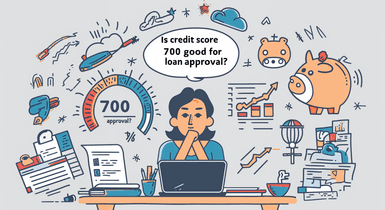Business Credit Scores: Everything You Need to Know
Contents

What is a business credit score? Similarly to personal credit scores, businesses also have a commercial credit score. This score is influenced by various factors, including credit utilization, payment history, and more. This metric directly impacts the ability of legal persons to secure financing, negotiate favorable terms with suppliers, and even attract potential investors.
For these reasons, understanding how to get a business credit score, what to do to improve it, and what benefits a high corporate credit score offers is crucial. Read on for a detailed review of business credit scoring essentials to find the answers to the aforementioned questions.
Credit Score Business Fundamentals

A business credit score functions much like a personal credit score. The business credit rating serves as a numerical representation of a company’s financial stability and reliability as a borrower. In other words, it reflects the strength of a company’s financial standing and demonstrates its capability to meet financial obligations.
What Is a Good Business Credit Score?
When it comes to scoring, a business score range differs from a personal rating scale, and here’s how.
The personal score is linked to your Social Security Number (SSN) and issued by one of three major credit bureaus — Experian, TransUnion, and Equifax. The most commonly used scoring method for personal scores is FICO, which ranges from 300 (poor) to 850 (excellent).
As for the businesses, the credit history is connected to the Employer Identification Number (EIN). There is no equivalent for FICO, as each bureau uses its own scoring method.
The most popular scoring model developed by the D&B agency is called PAYDEX by Dun & Bradstreet and ranges from 1 to 100, focusing on payment performance, showing your company’s ability to settle payments on time. The Experian Intelliscore Plus model uses the same scoring range for the payment index. The higher the score, the better. Besides, both agencies have separate scoring models to assess the likelihood of bankruptcy or late payments for specific business entities.
How a Business Credit Score is Calculated

Credit scores for businesses are generated by one of the reporting agencies like Dun & Bradstreet, Experian, and Equifax. Similar to personal scoring models relying on info from personal credit reports, business scoring models scores are calculated using these key factors:
- Payment History: Timely payment of bills and obligations to creditors and vendors is a decisive factor in calculating a credit score for businesses that demonstrate financial responsibility and credibility.
- Credit Utilization: High levels of business outstanding debt compared to available credit signal financial strain and instability and can lower your score.
- Length of Credit History: A longer history provides lenders and stakeholders more data to assess a company’s creditworthiness.
- Public Records and Liens: Negative information such as bankruptcies, liens, and judgments can seriously damage your business score. These are marks of financial distress, signaling that your company is an unreliable borrower.
- Industry Risk Factors: Certain industries are inherently riskier than others due to such factors as market volatility, regulatory environment, and competitive landscape. Reporting agencies consider these industry-specific risks to assess the likelihood of failures in your industry when calculating your business rating.
- Business Size and Age: Larger, more established businesses with a longer track record of stable revenue streams and strong financial reserves are generally typically as lower risk by creditors and may be assigned higher scores.
It’s worth noting that a personal score has nothing to do with business creditworthiness. Thus, even if your individual rating leaves something to be desired, you can still have a strong business rating. However, when registering business credit cards or loans, your personal rating will be on the creditor checklist as business crediting calls for personal guarantees.
Why Is a Business Rating Important?

A business credit rating is a key indicator of a company’s financial health and plays a critical role in the economic stability and success of organizations of all sizes and industries. To illustrate its importance, let’s explore why maintaining a strong credit profile is essential for your business and the potential consequences of a low score.
Benefits of a Good Score for Your Business
- Access to Financing: With higher scores, your company has higher chances of approval when applying for different credit products to obtain additional financing from banks and other financial institutions.
- Stronger Supplier Relationships: A positive score makes it easier for companies to qualify for more favorable payment terms, larger limits, and discounts on purchases.
- Lower Insurance Premiums: A higher score may result in lower premiums for commercial policies, as it indicates lower risk and a greater likelihood of fulfilling insurance obligations.
- Extended Opportunities: Companies with favorable profiles are perceived as trustworthy and reliable partners, making them more attractive to potential collaborations, joint ventures, contacts, and investment projects.
Consequences of Poor Rating
- Financing Struggles: Poor credit can limit a business’s access to resources needed for day-to-day operations and growth initiatives. Banks might deny loan applications or lend money at higher costs. Suppliers might limit credit lines, and there will be fewer opportunities to pursue profitable business partnerships or contracts.
- Reputational Damage: A history of late payments, defaults, or financial distress can damage a company’s reputation and credibility in the marketplace, which can harm relationships and hinder future business opportunities.
- Regulatory and Legal Issues: In severe cases, bad credit may lead to legal issues, such as lawsuits, creditor actions, and even bankruptcy proceedings. Such consequences can have long-lasting implications for the business and its stakeholders.
How Long Does Negative Data Stay on a Business Credit Report?
In addition to knowing business credit ratings, it’s also important to be aware of how long negative information stays on a credit report. The duration of how long the data is kept varies depending on its type, so here are the main ones, as per Experian.
Information Type | Duration |
|---|---|
Bankruptcy | 9 years, 9 months |
Judgement | 6 years, 9 months |
Trade Data | 3 years |
Tax Liens | 6 years, 9 months |
Leasing/Bank/Government Data | 3 years |
Collections | 6 years, 9 months |
Uniform Commercial Code (UCC) Filings | 5 years |
Keep in mind that as long as the negative information remains on your report, it will impact your commercial credit score range.
How to Boost Your Score

Given the importance of the score for your company’s ongoing operations and perspectives, it’s vital to maintain a positive rating to position your company for growth and success. Here are some actionable strategies to follow:
- Pay on Time: Consistently make payments by their due dates. To avoid missing deadlines and falling out of schedules, set up reminders or automate payments.
- Lower Credit Utilization: Aim to keep your outstanding debt low relative to your available credit limits. Work on paying down existing debt and refrain from maxing out your credit lines.
- Monitor Credit Reports: Regularly review reports for errors or inaccuracies, and promptly address any discrepancies to ensure they are corrected.
- Separate Personal and Business Finances: Use distinct accounts and credit cards for business expenses, and make timely payments in full each month to demonstrate creditworthiness.
Conclusion
The importance of a positive business credit score cannot be overstated. A strong credit profile can enhance your company’s financial stability, credibility, and access to opportunities, positioning your company for long-term growth and success in the competitive marketplace.




